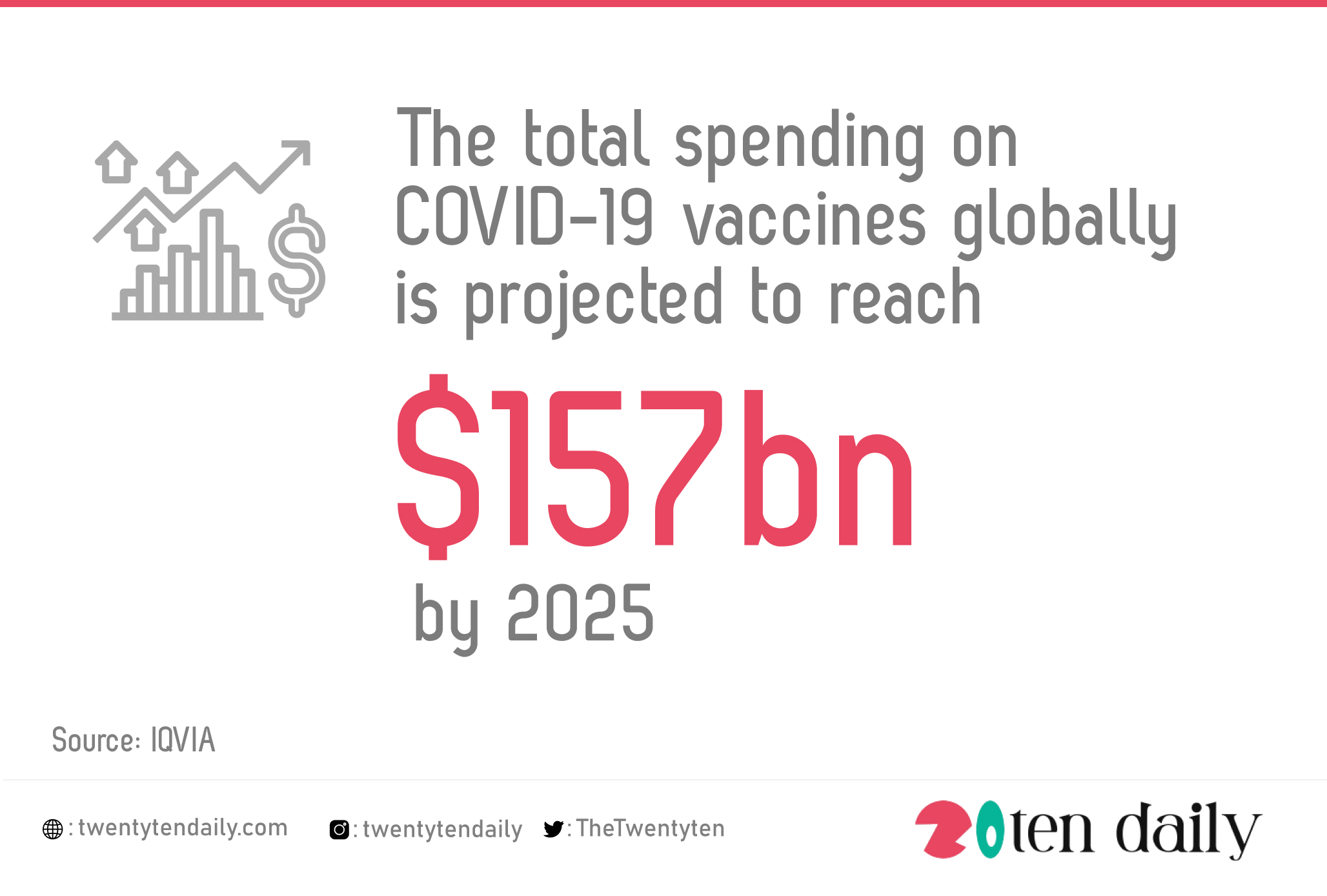Report: World To Spend $157 billion On COVID-19 Vaccines Through 2025
The total spending on COVID-19 vaccines globally is projected to reach $157 billion by 2025.
This is driven by a mass vaccination program underway and “booster shots” expected every two years, according to a report from Reuters by U.S. health data company IQVIA Holdings Inc .
IQVIA, which provides data and analytics for the healthcare industry, said it expects the first wave of COVID-19 vaccinations to reach about 70% of the world’s population by the end of 2022.

The booster shots are likely to follow initial vaccinations every two years, the report added. This is based on current data on the duration of effect of the vaccines.
Murray Aitken, a senior vice president at IQVIA, said, “Vaccine spending is expected to be highest this year at $54 billion with massive vaccination campaigns underway around the world.
“It is expected to decrease after that eventually to $11 billion in 2025, as increased competition and vaccine volumes drive down prices, said The forecast for such meteoric growth in sales for a new class of drugs or vaccines is unmatched, but reminiscent of the $130 billion spent on the new hepatitis C cures between 2014 to 2020 due to pent up demand.”
The spending forecast for COVID-19 vaccines represents 2% of the roughly $7 trillion forecast for all prescription medicines during that time period, IQVIA added.
However, excluding the cost of COVID-19 vaccines, overall medicine spending is forecast to be $68 billion lower over the six years from 2020 to 2025 than it would have been without the pandemic, according to the report.
“The pandemic caused major disruptions to doctor visits, procedures and medicine use, leading to some stockpiling in the early days for some medications and then a return to a more normal trend.
“While COVID-19 vaccines will cost $157 billion over the next five years,” Aitken said, “that is a very small price to pay relative to the human cost of the pandemic”, the report said.



